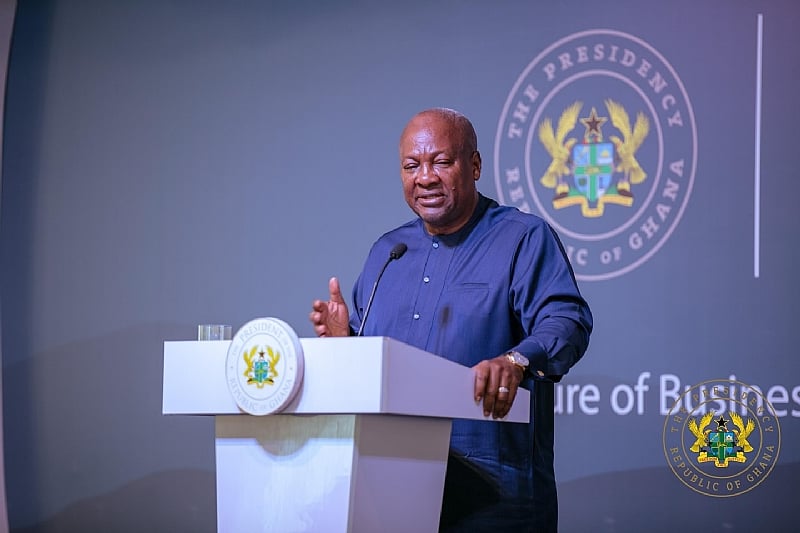The Geopolitical Landscape and Its Impact on Ghana’s Energy Sector
The ongoing conflict between Israel and Palestine has sent ripples of concern throughout the global community, raising anxieties about the potential for escalating tensions and wider regional instability. The conflict, rooted in a complex web of historical grievances, territorial disputes, and religious differences, has witnessed a surge in violence, resulting in significant loss of life and widespread displacement. The exchange of missiles and retaliatory strikes has not only exacerbated the humanitarian crisis but also threatens to destabilize an already volatile region. The international community has expressed grave concerns about the potential for the conflict to spill over into neighboring countries, further complicating an already intricate geopolitical landscape. The situation underscores the urgent need for a peaceful resolution to the conflict, one that addresses the root causes of the violence and ensures the safety and security of all involved.
For Ghana, the conflict presents a particular challenge due to its potential ramifications for the country’s energy sector. Ghana, like many other nations, relies heavily on imported crude oil, making it vulnerable to fluctuations in global oil prices. The conflict in the Middle East, a major oil-producing region, has already begun to exert upward pressure on crude oil prices, raising concerns about the potential impact on Ghana’s economy. Higher oil prices could lead to increased transportation costs, higher electricity tariffs, and a general rise in the cost of living, potentially eroding the economic gains made by the government in recent years.
President Mahama’s Proactive Approach to Mitigating Potential Economic Shocks
Recognizing the potential economic fallout from the escalating conflict, President John Dramani Mahama has taken proactive steps to address the situation. He has directed the Minister of Finance and the Minister of Energy and Transition to closely monitor the unfolding events in the Middle East and assess their potential impact on Ghana’s petroleum prices. This proactive approach demonstrates the government’s commitment to safeguarding the country’s economic stability and protecting the gains achieved in recent years. The President’s directive underscores the importance of anticipating potential challenges and taking preemptive measures to mitigate their impact on the Ghanaian economy.
The President’s directive also highlights the interconnectedness of global events and their potential ripple effects on national economies. The conflict in the Middle East serves as a stark reminder that global events can have far-reaching consequences, even for countries geographically distant from the epicenter of a crisis. This underscores the need for governments to be vigilant and prepared to respond to external shocks that could potentially disrupt their economies.
Expressing Gratitude and Reaffirming Commitment to the Savannah Region
During his Thank You Tour of the Savannah Region, President Mahama took the opportunity to express his gratitude to the chiefs and people of the region for their unwavering support during the December 7, 2024, general election. He acknowledged their trust and prayers, recognizing the significant role they played in his electoral success. The President’s visit to the region served as a platform to reinforce his commitment to the people of the Savannah Region and to reiterate his dedication to their well-being.
The President’s visit also underscored the importance of engaging with local communities and maintaining open lines of communication between the government and the people it serves. By visiting the Savannah Region and interacting directly with the chiefs and people, President Mahama demonstrated his commitment to listening to their concerns and addressing their needs. This type of engagement is crucial for fostering trust and building strong relationships between the government and the citizenry.
The Importance of Economic Stability and Global Awareness
The President’s actions in response to the escalating conflict in the Middle East and his engagement with the people of the Savannah Region highlight two key themes: the importance of economic stability and the need for global awareness. The government’s proactive approach to mitigating the potential economic impact of the conflict demonstrates its commitment to maintaining a stable economic environment conducive to growth and development. Simultaneously, the President’s recognition of the interconnectedness of global events and their potential impact on Ghana underscores the importance of staying informed about global developments and being prepared to respond to potential challenges.
In today’s increasingly interconnected world, national economies are vulnerable to a wide range of external shocks, from geopolitical conflicts to natural disasters. Governments must be proactive in anticipating these challenges and taking steps to mitigate their impact on their citizens. This requires not only close monitoring of global events but also the development of robust strategies to address potential economic disruptions. By staying informed and prepared, governments can help to protect their economies and ensure the well-being of their people.


